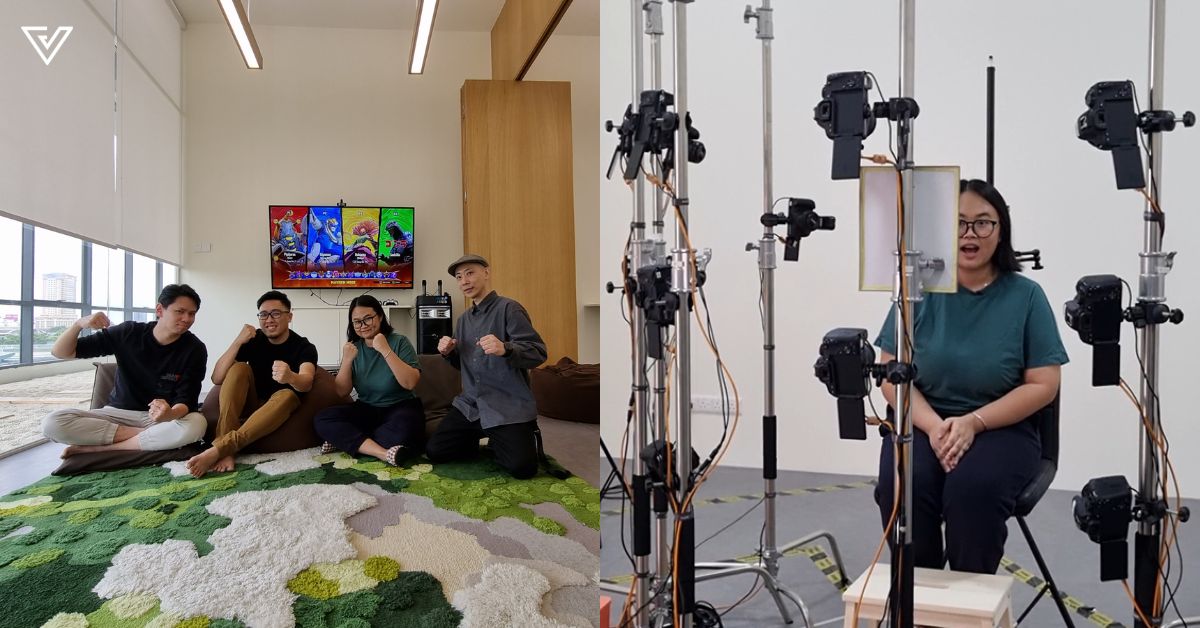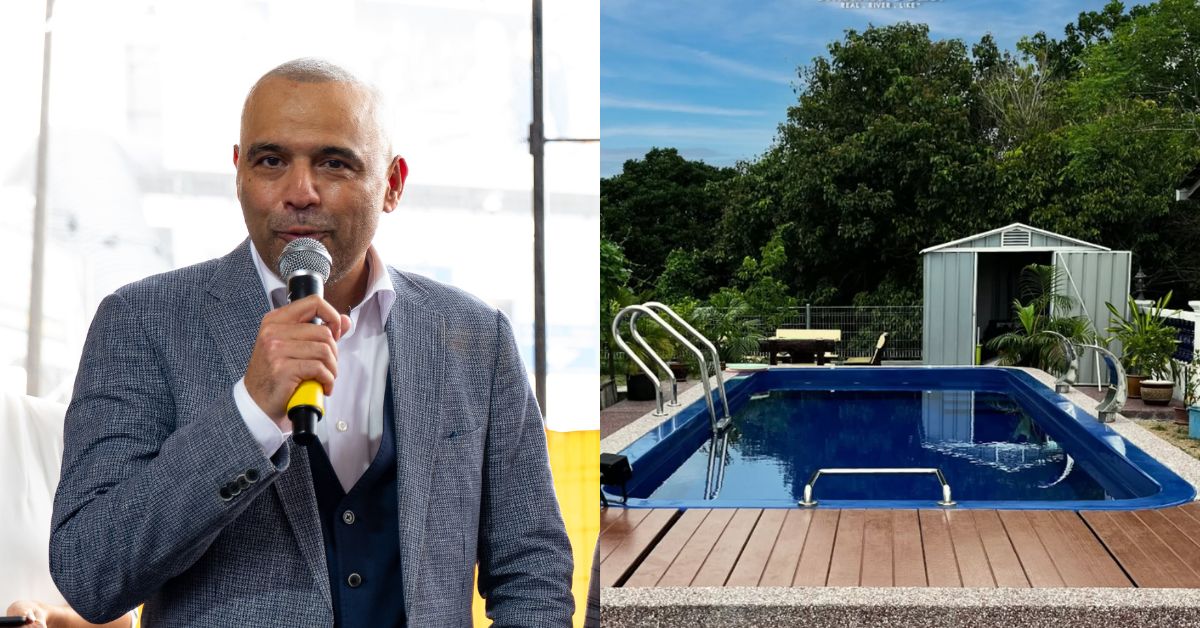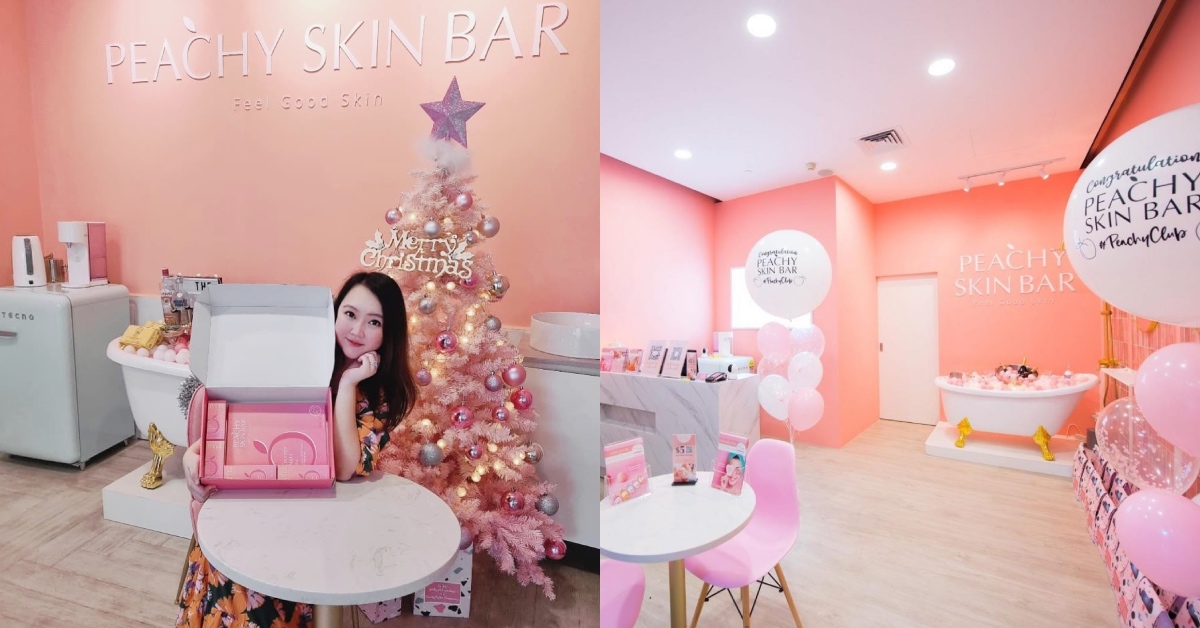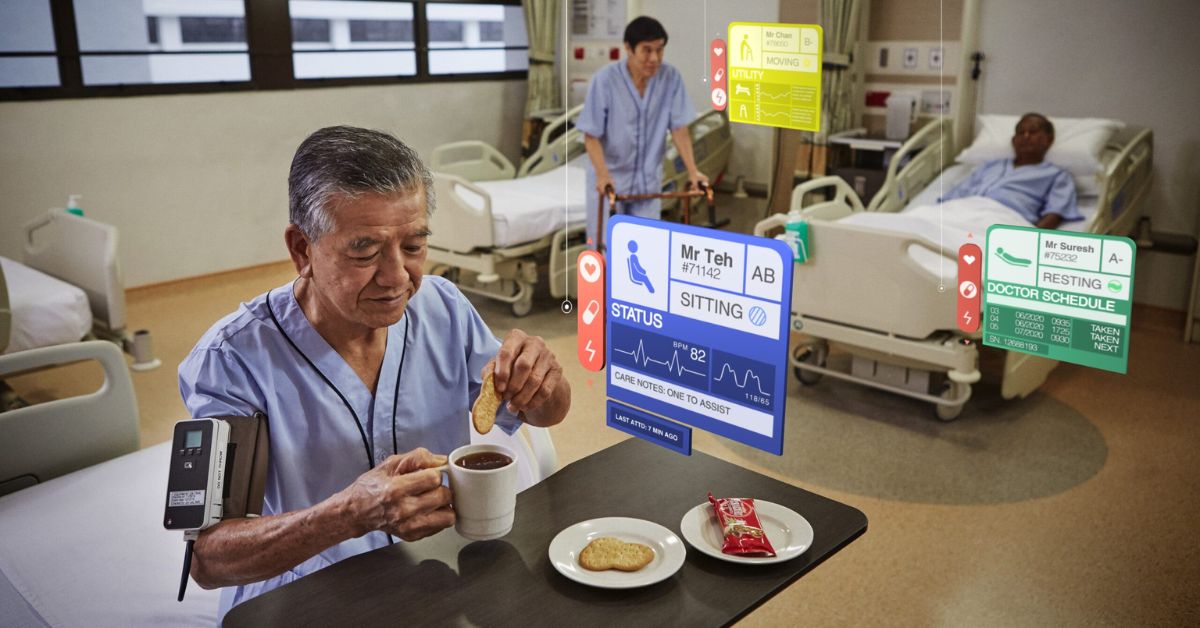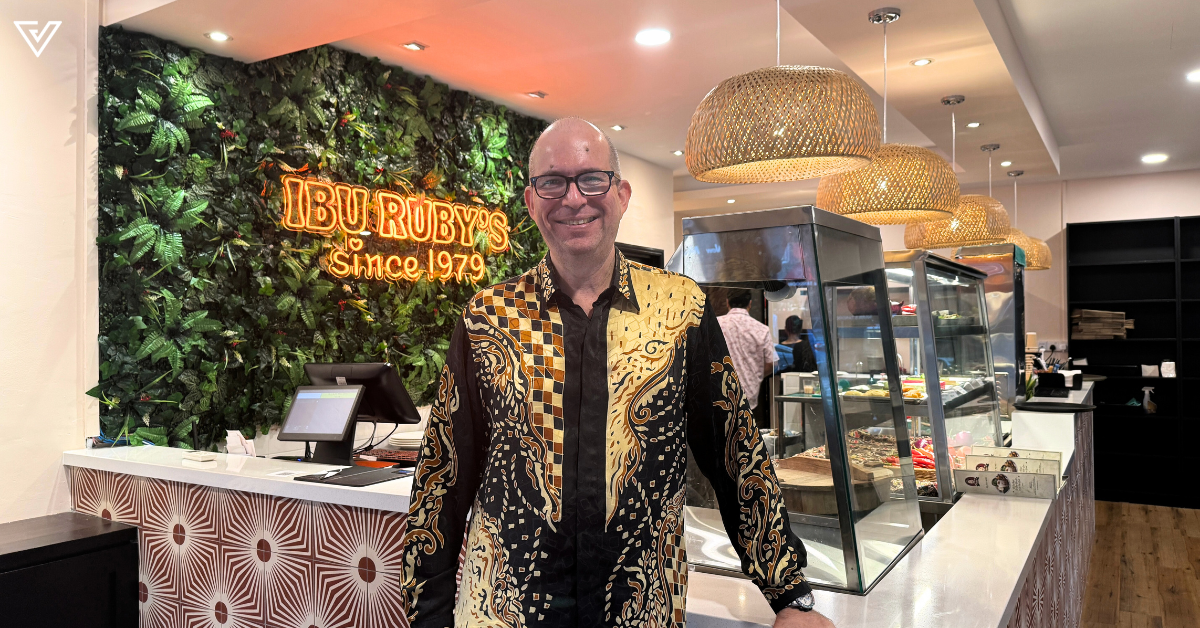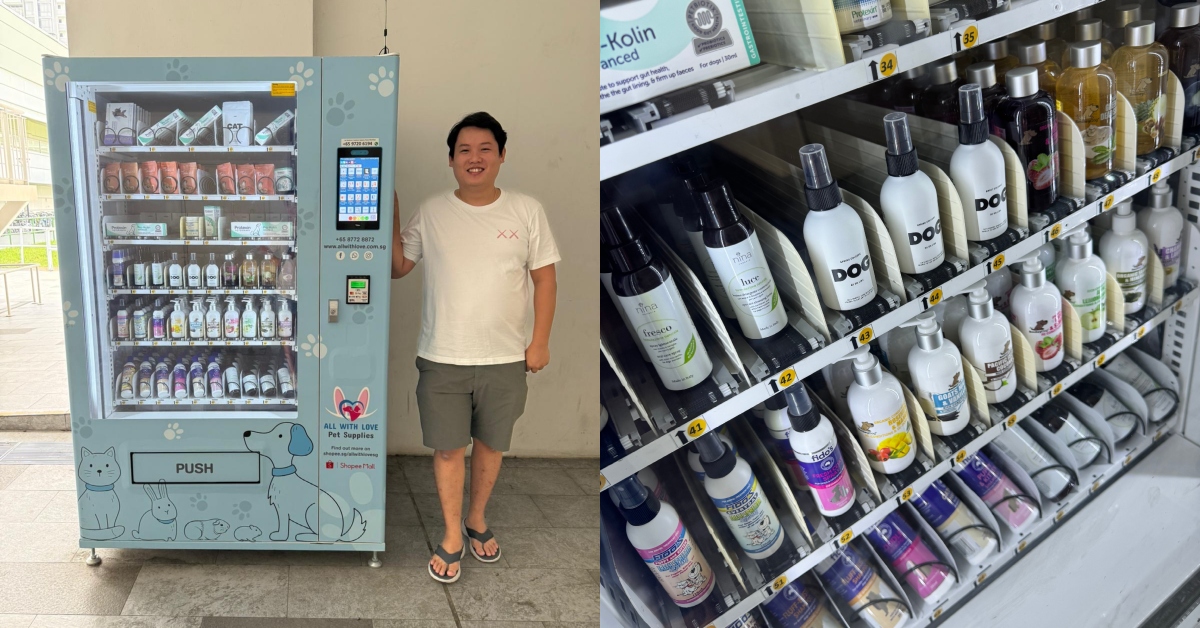Stepping into Passion Republic’s three-floor, 55,000 square feet office in Bandar Sunway, we’re first greeted by a concrete-clad foyer, complete with a Passion Republic logo emblazoned on the wall.
Crossing the foyer’s threshold, the space opens up to reveal an arena of an office. It’s fully open-concept with high exposed ceilings and nary a partition in sight.
The studio had moved from their previous location in Puchong to this new location around the middle of last year. It’s Passion Republic’s fourth office, having been growing and growing ever since the company was formed in 2009.
Back then, when it first launched, the company had been less republic and more… fruit? Starting as a seven-person team in 2009 under the name of Passion Fruit Animation House, the 180-employee-strong company has since pivoted to focus on the video gaming sector.
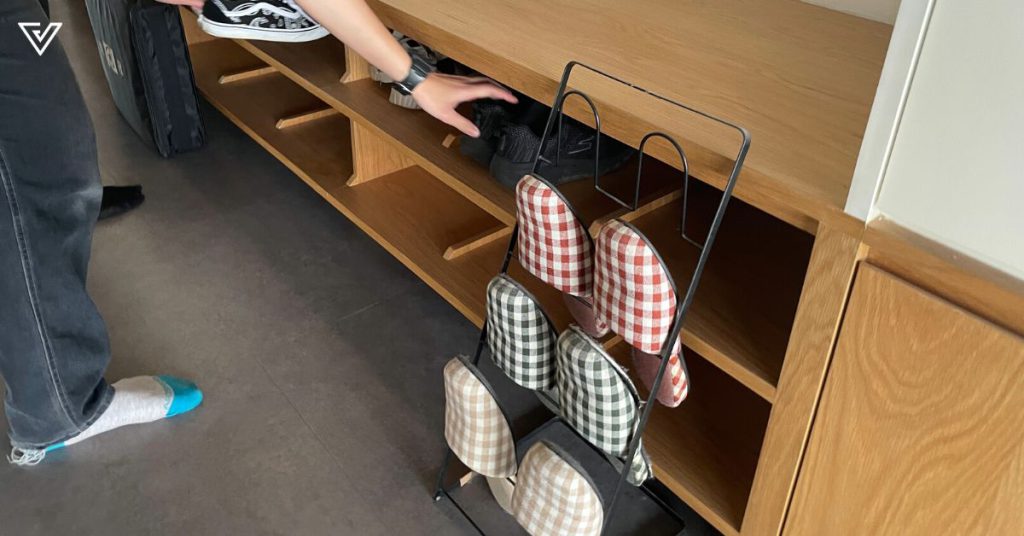
Here’s a quick, definitely not exhaustive list of the kind of games Passion Republic has worked on: Spider-Man Remastered, The Last of Us Part 2, Diablo II: Resurrected, Elden Ring, Stray, and more.
Needless to say, we were pumped to be there at the office with the team that had played a part in these legendary titles.
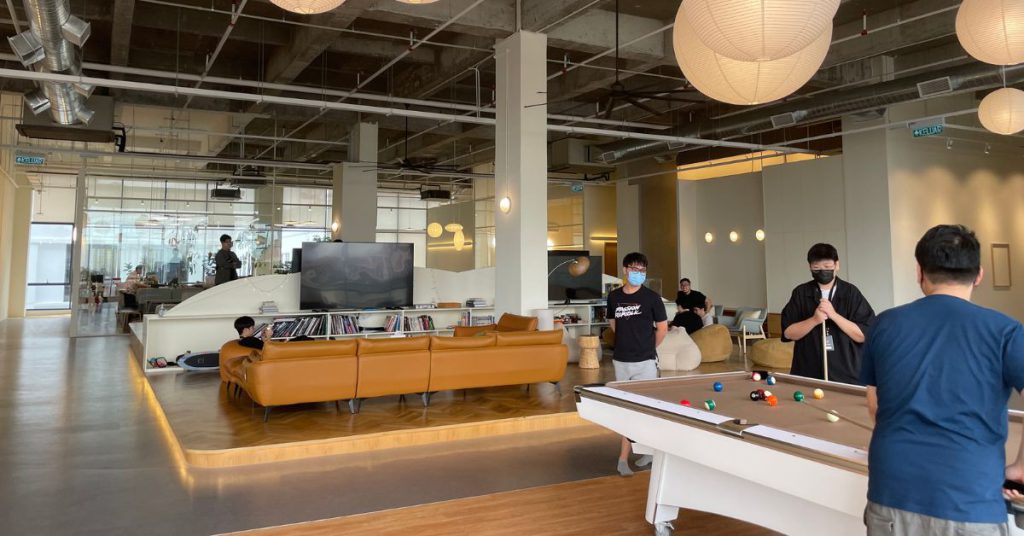
We were welcomed by Reeca Lim, the Brand Manager who made our visit possible. She’s joined by Wei Han and Sun, two members of the team that had participated in the interior design of the new office. They would give us a guided tour of the space.
A quirky, functional space
As artists, neither of them has formal training in interior design. However, Sun had supported the interior design team who worked on Passion Republic’s previous Puchong location, which is about three times smaller than the current one.
Of course, Sern, the founder of Passion Republic, also played a big role in the design. The main goal, Sun shared, was to create something that wasn’t so stuffy and corporate.
As such, they went for a Japanese-Scandinavian style and stayed away from using their own brand colours or logos. Minimalistic and homey, the whole space almost looks like a modern and artistic furniture showroom.
But of course, aesthetics aside, functionality is also key. The team took into consideration the kinds of spaces they needed, from meeting rooms and conference rooms to a whole space for fun and games (from video to tabletop ones).
Wei Han and Sun shared that they actually visualised the office through a 3D rendering (or 2D) as well.
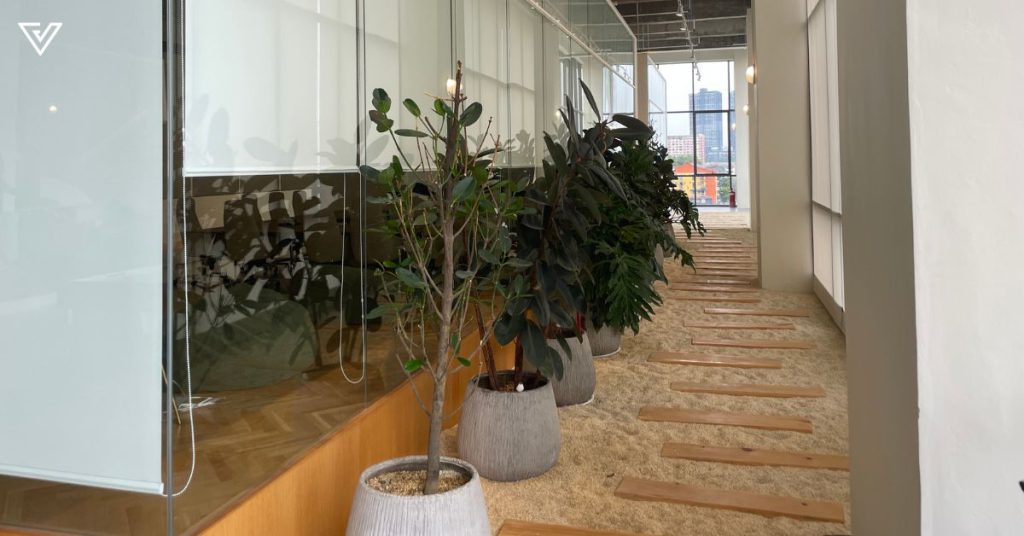
“Sern and I are truly artists, so it’s the easiest way to convey our message,” Sun explained.
Though Passion Republic has taken up three whole floors of the building (levels five to seven), only two are in use currently, with the third still undergoing some renovations.
However, the second floor, which comprises the bulk of the office space, was closed off to us as well, since there’s a lot of hush-hush projects being worked on there.
When asked about whether the team looked to other studios and office for inspiration, they shared that it wasn’t exactly a main concern of theirs.
“We’re not looking to compete with other game studios,” Wei Han shared. “We have our own culture here, we just want to be comfortable in our own space, our own skin.”
Cool tech for a cool company
One of the first rooms our tour guides led us into was the photogrammetry room. A DIY setup, it consists of 18 entry-level cameras.
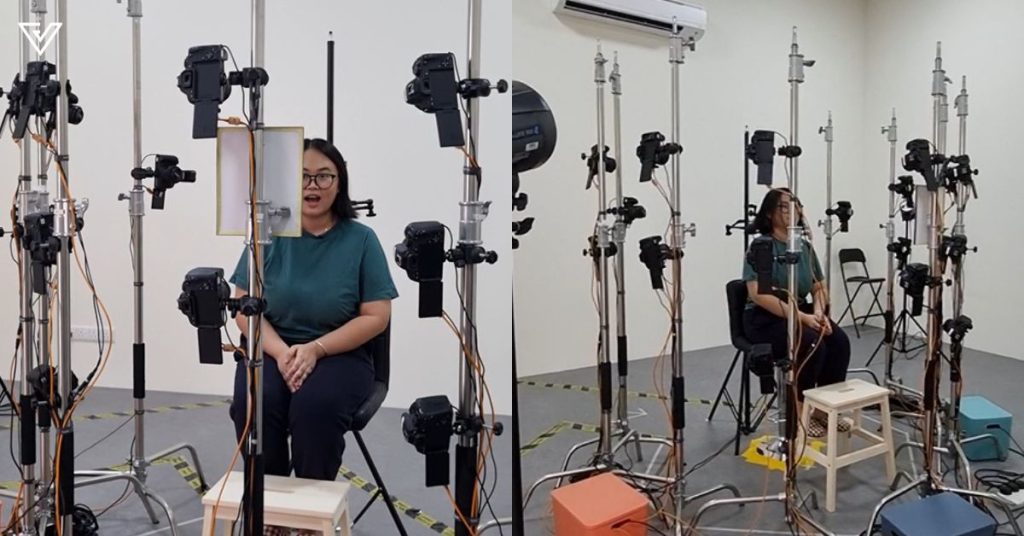
Photogrammetry refers to the science and technology of taking 2D photos and combining them to generate photorealistic 3D representations of the subject being photographed.
In the gaming world, this helps create 3D assets and is more efficient and accurate compared to modelling something in 3D-sculpting software.
“This will be useful if, say, there’s a game that feature local Southeast Asian, Malaysian people—we have a lot of those here,” Mel, the production lead and lead computer graphics artist, shared. “Because usually a lot of games feature Western people, right?”
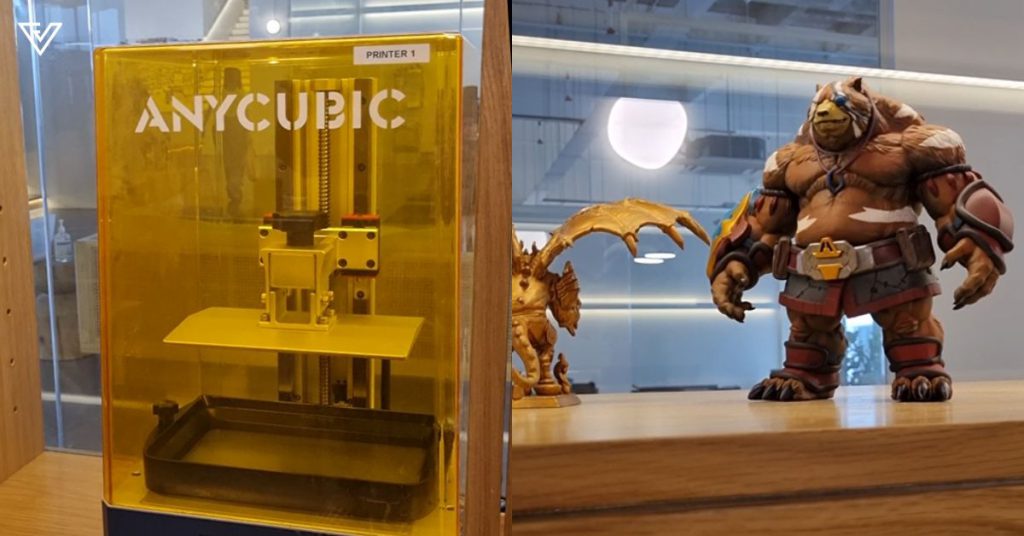
The office also has 3D printing facilities where artists can come and print their own 3D models with resin. Within the workshop, there’s even an airbrushing station so artists can bring their models to life.
And of course, there’s the motion capture (mocap) room.
Situated in the corner of the office, the room consists of a wide, spacious area with padded floors and fancy motion capture cameras lining the room.
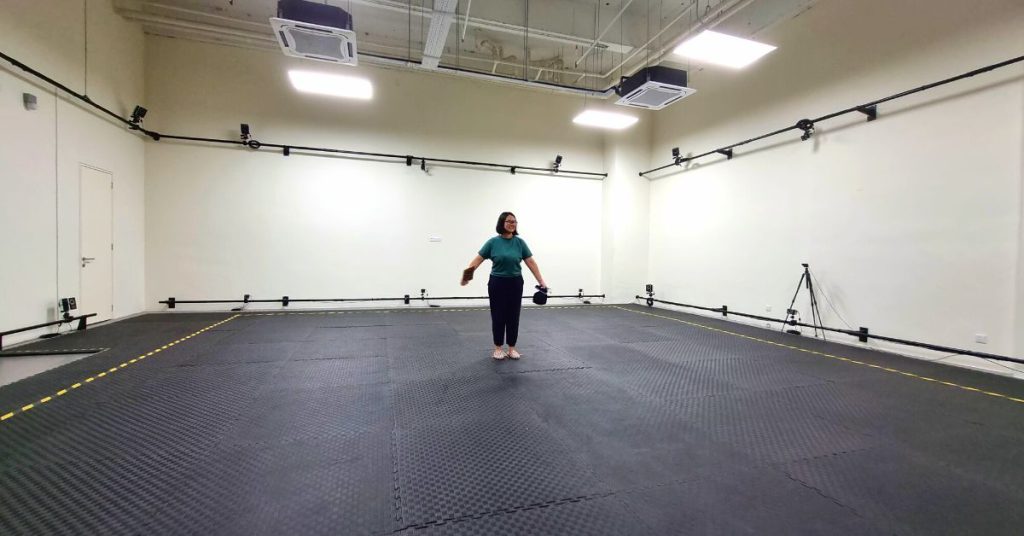
How it works is that actors will put on a suit with reflective markers on their bodies, and the cameras will detect all the motions made.
“This setup is from Vicon, it’s pretty standard in the industry,” Mel said. “It’s the same as the one that they use to do The Last of Us in LA, but it’s on a much smaller scale.”
Other than just the regular suits, the team also has some additional “limbs” the actors can put on when acting as certain monsters. There are also prop shields and guns.
Growing into a republic of 180 employees
As the once-empty cafeteria grew lively with chatter, we, too, took a seat, now joined by the founder of the company himself, Sern.
Over nasi lemak, he shared about how the team looked at around 10 other places before deciding on their current office.
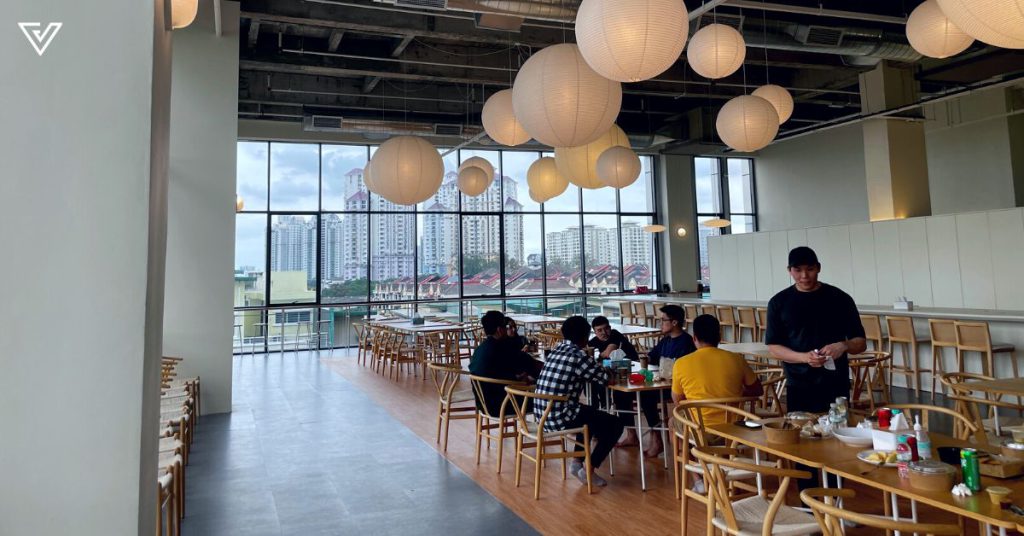
“We kind of outgrew the [previous] space. But, also, the blessing in disguise is that we were chased out because they exchanged ownership of the space, and the new owners wanted to take over for their own use,” Sern shared.
Mel, sitting next to the founder, added that they had actually renovated the previous place before being moved out. It was disappointing at the time, but in hindsight, the building had been rather dilapidated, so leaving was a good thing.
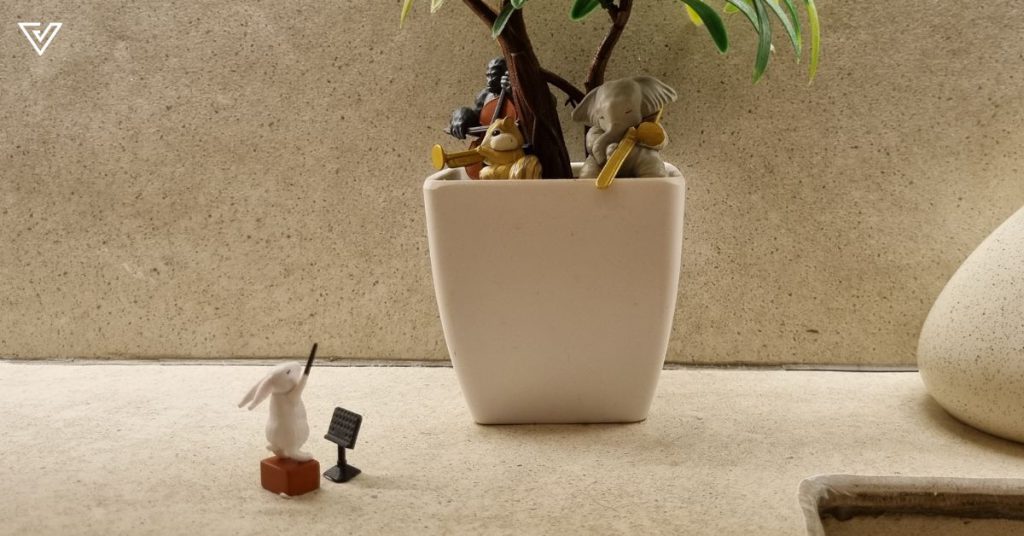
Asking the table how long they’ve been working at the company, answers ranged from six years to 13. Some, such as Sun, had joined back when the company was still Passion Fruit Animation House.
Sern shared that it was very challenging in the early days, with the team working mostly on advertising projects with fast turn-around time.
“At one point we encountered a game outsourcing opportunity and we thought it would provide a healthier journey for everyone,” he said.
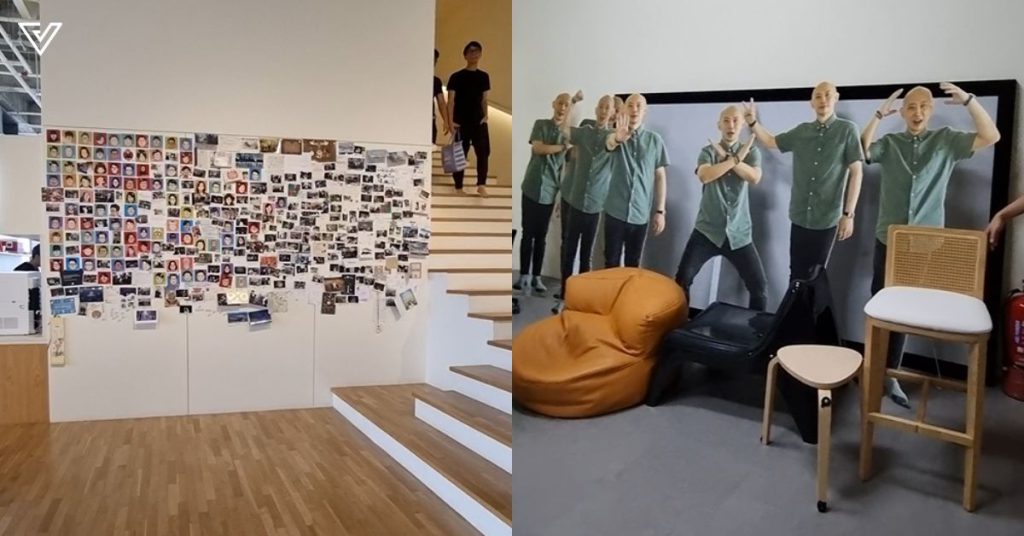
This is because the game development timeline is much longer, usually ranging from three to five years, compared to the timeline of TV commercials and even films. As such, the decision to pivot seemed to happen quite organically.
“It was a… I don’t know, a guided decision,” he gestures to the sky.
From providing solutions to creating IP
After lunch, we had the opportunity to have a gaming session with Sern, Mel, and Aiken. The game we played? GigaBash, of course.
It was a little challenging to talk shop while playing a video game (totally the only reason why I kept dying).
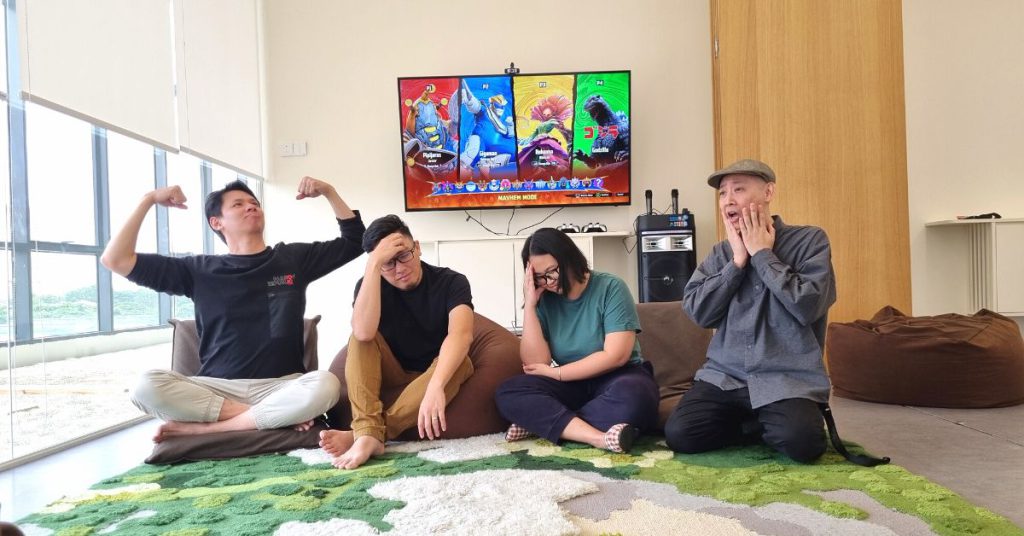
GigaBash, a game we’ve reviewed in the past, is Passion Republic’s first original IP. Mel and Aiken are both co-directors of the game. It’s a four-player arena 3D brawler game featuring a larger-than-life cast of film-inspired Kaiju heroes and titans.
“Before GigaBash, we put four prototypes to the shelf,” Sern shared. “Some of the key reasons was we couldn’t find the alignment, or the best mechanics and ideas.”
At one point, the team was determined to deliver on a full-fledged game. Organically, the idea for GigaBash came up.
Having worked mostly with clients, though, it proved to be a somewhat different experience working on IPs.
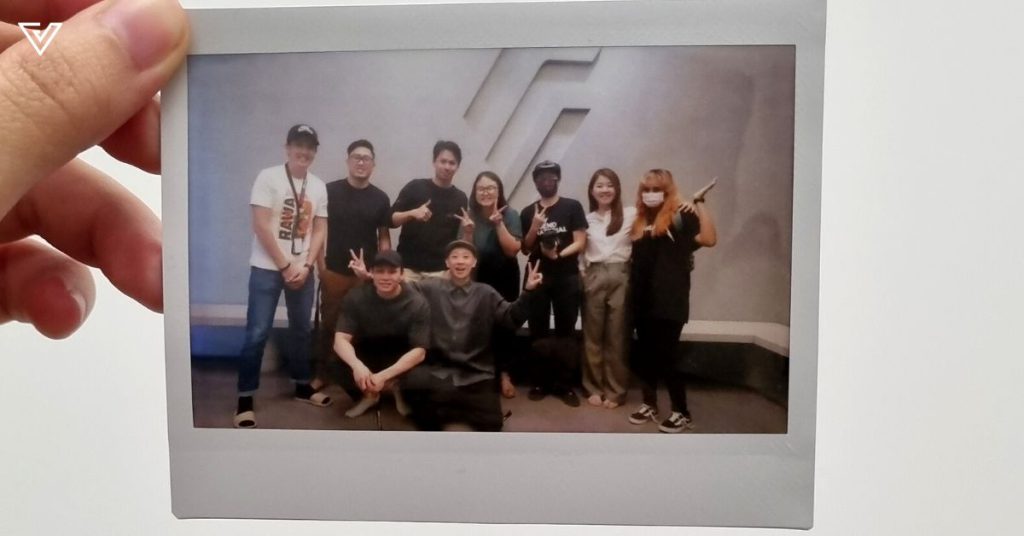
“As a team, I think it’s been quite a while since everyone can come together as a unit to produce something together,” Sern said.
Compared to doing outsourcing work, creating an IP involves a lot more cross-disciplinary discussions, which the team shared they’ve been enjoying.
Retaining the talent and passion
Back when Passion Republic first started, finding opportunities as a gaming company was hard.
“Because when we work on game cinematics, usually those opportunities will only land in Malaysia when all of the awesome studios internationally were fully occupied,” Sern explained.
Sern also shared that Malaysia was considered one of the riskiest places to outsource games, films, or just about any IPs to because of piracy.
However, as companies like Ubisoft and Codemasters landed in the region, foreign investors grew to have more confidence here.
Now, even companies such as Bandai Namco and Sony have made their presence known in Malaysia, further elevating the confidence for the whole industry.
The ecosystem growing is definitely a fantastic thing, but does it affect Passion Republic in terms of talent retention?
“Yeah, kind of,” Mel answered. “But it’s a good kind of competition.”
To help with retention, the company tries to give its team members meaningful work to pursue and, of course, treat them well. According to Sern, the turnover rate for them currently is 10% per annum.
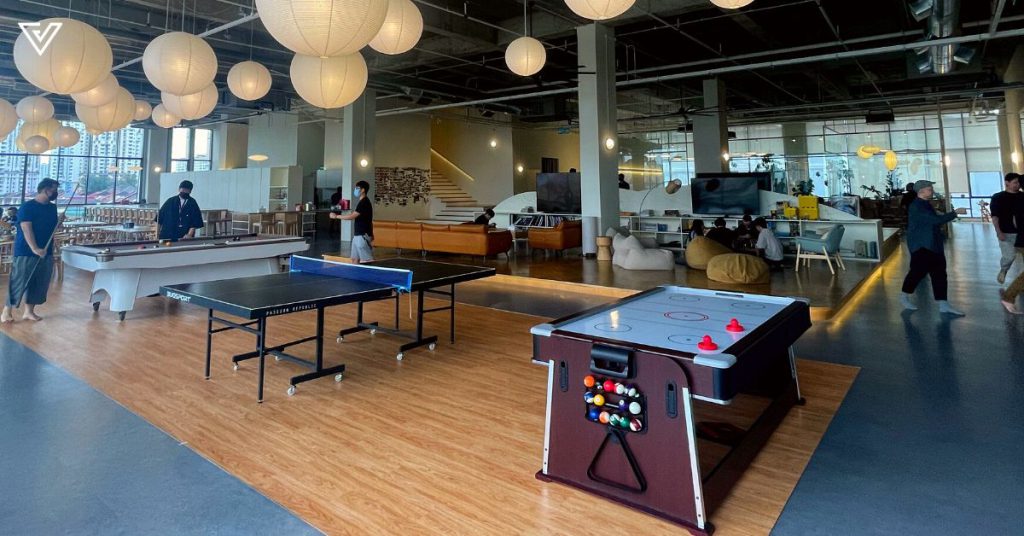
More than just competing with companies in Malaysia, remote work has opened up a whole new world of possibilities for employees, too.
So, it’s important to remember that it’s not just about retaining talent in a specific company—it’s about retaining talent in Malaysia to begin with.
“We always wanted to be an inspiring company from the ground up, back when we started,” Sern shared in between bashing me in GigaBash. “Because back then people were losing hope in our country, in our community, everyone was trying to go out of Malaysia.”
“We wanted to prove that with determination, we can make it.”
Well over a decade later, it could be said that the company has proved just that.
Editor’s Update: Information in this article has updated to the reflect greater accuracy of the office’s size, which was originally miscommunicated to be 70,000 sq ft.
- Learn more articles we’ve written about Passion Republic here.
- Read more articles we’ve written about gaming here.

